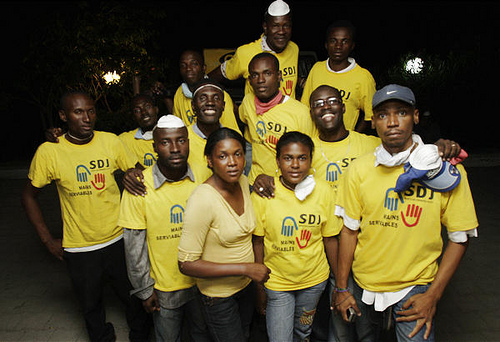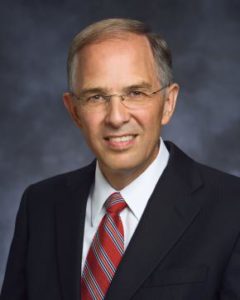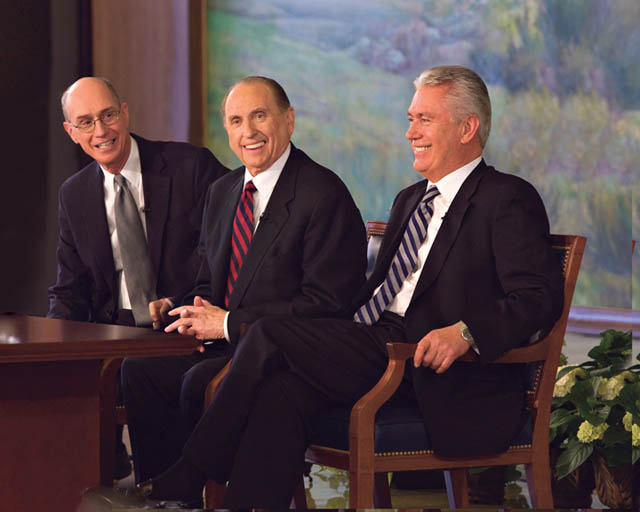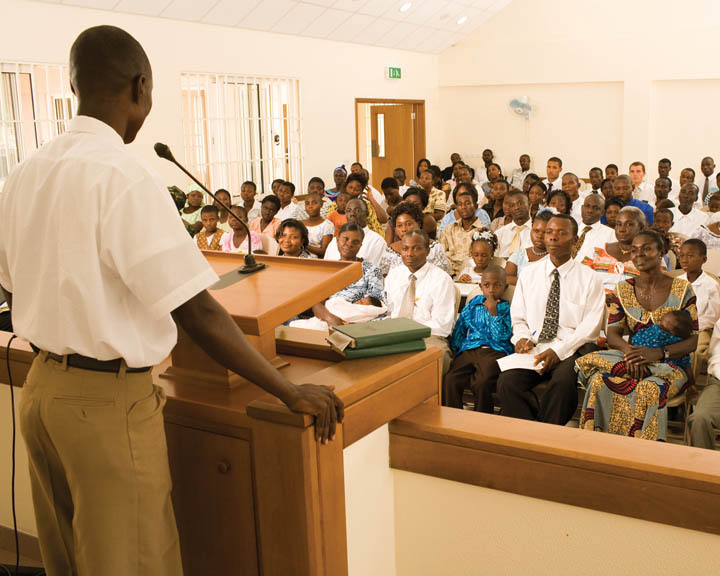At the April 2009 General Conference of the Church of Jesus Christ of Latter-day Saints (sometimes called Mormons), history was made with the calling of Joseph W. Sitati to the First Quorum of the Seventy. He is the first black person from Africa to be called as a General Authority-the leading body of the church. There have been other black General Authorities, and other African authorities, but no one who was both black and a native of Africa.
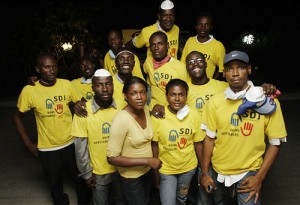 The first General Authority of African descent was Helvécio Martins. Although he descended from African slaves, he was born in Brazil. The first African General Authority was Christoffel Golden Jr., of Johannesburg, South Africa.
The first General Authority of African descent was Helvécio Martins. Although he descended from African slaves, he was born in Brazil. The first African General Authority was Christoffel Golden Jr., of Johannesburg, South Africa.
Elder Sitati was born in Kenya. He’s an engineer by trade, having graduated from the University of Nairobi. He worked in the oil and gas industries. He also served on the board of Reach the Children, a non-profit organization that works to improve opportunities for African children by strengthening self-reliance and improving communities.
Elder Sitati is a convert to the church. He and his wife were looking for something to help them raise a strong family. He was baptized in 1986. Only three years later, he was a district president, similar to overseeing a Catholic diocese. He was, in fact, the very first district president of the newly formed district in Kenya. Organizing a new district is a daunting task for a long-time, experienced church leader. For someone who had only been a member for three years, this was an amazing feat.
The task was made more complicated because that year, the government of Kenya had made it illegal for more than nine adult members to meet together, and had asked all full-time missionaries to leave the country. He organized all the members into small nine-person groups and ensured at least one priesthood leader oversaw each group. However, there weren’t many church members, and the restrictions, and lack of missionaries, made it difficult to carry out the normal programs of the church causing them to lose many of their members. However, Elder Sitati, a man of great faith, saw it as nothing more than a passing phase that could be overcome.
To this end, he asked all the church members to fast (go without food or drink for twenty-four hours) and pray that the church would become officially registered in their country, which would lift the restrictions. His leadership was so great that small children were reminding their parents to pray again. Their prayers were answered early in 1991. A few months later, Uganda was also registered, and James E. Faust, an apostle, was sent there to dedicate both countries to the preaching of the gospel. Elder Sitati and his family were the first Kenyans to go to the temple, following the lifting of apartheid, where they were sealed as a family. This is a Mormon ceremony that joins a family not just until death separates them, but for all of eternity.
In 2001, the district, under his direction, had grown large enough to be called a stake, similar to the district, but demonstrating a larger LDS population. He was then selected to lead as the first stake president of the newly formed stake. He was later called to be an area seventy, overseeing a large portion of the area in which he lives. He next oversaw church public affairs, working with the news media, for all of Africa. This was followed by time spent overseeing the Nigeria Calabar Mission, where he supervised the work of all missionaries assigned to that region. This was his assignment at the time of his call to the First Quorum of the Seventy, a designation that makes him a General Authority, serving under the direction of the apostles. They are often asked to speak at General conferences, and more than twenty of them have gone on to become apostles.
About Terrie Lynn Bittner
The late Terrie Lynn Bittner—beloved wife, mother, grandmother, and friend—was the author of two homeschooling books and numerous articles, including several that appeared in Latter-day Saint magazines. She became a member of the Church at the age of 17 and began sharing her faith online in 1992.

